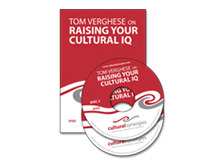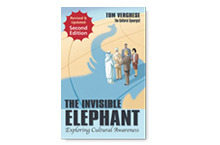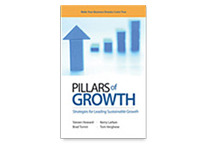
|
| THE CULTURAL SYNERGIST |
|
Over the last year, I have been delivering Cultural
Intelligence and Ethical Leadership programmes across a number of industries
and locations around the world. This is a topic that I find fascinating because
the link between culture and ethics is so interconnected; it always contributes
to a further layer of complexity when working across borders. It doesn�t matter
what the industry or the location, often the issues and concerns can be quite similar. http://www.culturalsynergies.com/images/stories/pdf_article/cq%20paperv3.pdf If you would like to follow our Cultural Intelligence Blog go to: http://culturalsynergies.wordpress.com Best Wishes Tom Verghese Send to Friend |
||||
| Ethical Leadership |
||||

|
||||
|
Following on from a Michael Neill workshop that I did last
year I would like to recommend his latest book �The Inside Out
Revolution.� It is a short, pragmatic, easy
to read book that contains a handful of stories and case studies. He writes in
a conversational tone that makes for a good read.
|
||||||
| RECOMMENDED BOOK: "The Inside Out Revolution: by Michael Neill. 2013 |
||||||
 |
||||||
| nbsp; |
|
|
RESOURCES 'Raising Your Cultural IQ - DVD and CD 'Raising Your Cultural IQ' explores the issues around culture, the challenges that culture can pose and provides some great strategies on how to leverage on cultural differences and similarities. 'The Invisible Elephant - Exploring Cultural Awareness' Book testimonial by Asma Ghabshi Visit our store here
|
|

|
||

|
||

|
||

|
|